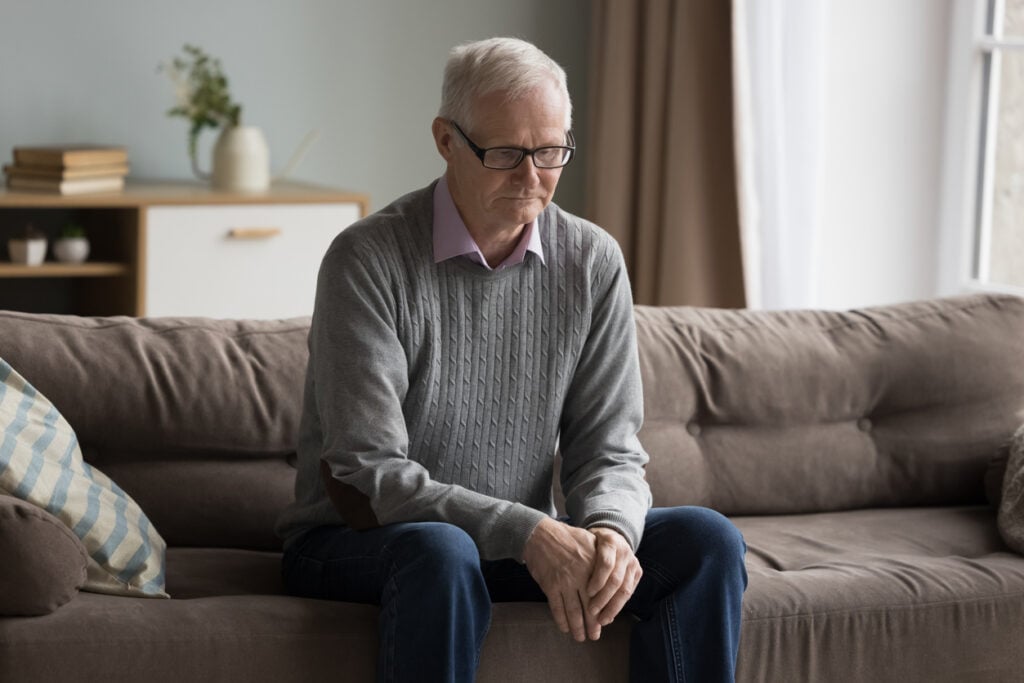When retirement feels like anything but the golden years.

Retirement is often painted as a time for ultimate freedom, relaxation, and joy. But for many, it doesn’t live up to the hype. Instead of enjoying their newfound free time, some retirees feel trapped by financial pressures, health struggles, or emotional challenges. If your golden years feel more like a struggle than a reward, you’re not alone.
These signs might indicate that your retirement isn’t what you were promised.
1. Financial stress is overshadowing everything.

One of the harshest realities of retirement is realizing that your savings or pension isn’t enough to sustain your desired lifestyle. Rising costs, healthcare expenses, and unexpected emergencies can quickly deplete your funds and cause constant worry about the future.
This financial strain can overshadow everything else, making it hard to enjoy hobbies, travel, or even day-to-day activities. Without proper planning or additional income sources, the stress of financial insecurity can make retirement feel far from relaxing.
2. Your days feel empty and aimless.

Without the structure of work, many retirees find themselves struggling to fill their days meaningfully. The lack of routine can lead to boredom, frustration, and even feelings of purposelessness that make retirement less enjoyable.
Engaging in new hobbies or setting goals for each day can help combat this. Whether it’s learning a new skill, volunteering, or starting a small side project, finding purpose can bring fulfillment and excitement back to your life.
3. Loneliness is creeping into your life.

Retirement often disrupts the social connections built during your career. Friends might still be busy with their lives, and family may live far away. This sudden change can lead to feelings of isolation and loneliness.
Building new social circles can feel daunting, but it’s crucial for mental health. Joining clubs, attending community events, or simply reaching out to old friends can help you rebuild the social connections you need to thrive.
4. Your health has started to decline.

The freedom of retirement can sometimes lead to unhealthy habits, like eating poorly or becoming less active. Over time, these choices can result in weight gain, chronic illnesses, or decreased mobility, making it harder to enjoy this stage of life.
To counter this, prioritize daily exercise, balanced meals, and regular check-ups. Small lifestyle adjustments can significantly improve your health, ensuring you have the energy to make the most of retirement.
5. You’re burdened by caregiving responsibilities.

Instead of enjoying their own freedom, some retirees find themselves caring for aging parents, grandchildren, or even a spouse with health issues. While caregiving is often rewarding, it can also feel overwhelming and exhausting.
Setting boundaries and seeking support from other family members or professional caregivers can help lighten the load. Taking time for self-care is essential to avoid burnout and maintain a balanced life.
6. Travel plans have remained unfulfilled.

Many retirees dream of traveling, but financial constraints, health issues, or fear of the unknown can keep those plans from becoming reality. These missed opportunities can lead to feelings of regret and dissatisfaction.
Adjusting expectations can help you make travel more achievable. Look for budget-friendly options, consider local trips, or plan shorter getaways to fulfill your sense of adventure without overextending yourself.
7. You miss the sense of accomplishment from work.

Work often provides a sense of purpose and achievement. Without it, retirees can feel a void that leaves them questioning their value. This lack of accomplishment can lead to feelings of frustration or even depression.
Pursuing new challenges or contributing to your community through volunteering can help fill this gap. Finding ways to stay productive can restore your sense of pride and satisfaction.
8. Relationships are more strained than ever.

Retirement often means spending more time with loved ones, but it can also magnify underlying tensions. Too much togetherness or unspoken conflicts can lead to strained relationships with your spouse, children, or other family members.
Open communication and respecting personal space are crucial. Taking time to nurture your relationships while maintaining your independence can help create a healthier, more supportive dynamic.
9. Your retirement expectations were unrealistic.

For years, you may have imagined retirement as a perfect escape, only to find that it came with its own set of challenges. Unrealistic expectations can lead to disappointment and make it harder to appreciate the positive aspects of this stage.
Reframing your perspective and setting more achievable goals can help. Embrace the opportunities available to you, and focus on the aspects of retirement you can control and enjoy.
10. You feel disconnected from the modern world.

Without the daily exposure to younger generations or workplace technology, some retirees feel out of touch with current trends and advancements. This disconnect can lead to feelings of irrelevance or frustration.
Staying engaged with younger family members, joining online communities, or learning new skills like technology can help bridge the gap. Embracing lifelong learning will keep you connected and confident.
11. You’re overwhelmed by unexpected life changes.

Retirement often brings unforeseen changes, such as health issues, a spouse’s passing, or moving to a new home. These disruptions can make it hard to find stability and enjoy your freedom.
Adapting to change takes time and patience. Seek support from loved ones, or consider speaking with a therapist to help navigate these transitions. Building resilience will allow you to handle challenges while finding joy in the new possibilities retirement offers.
